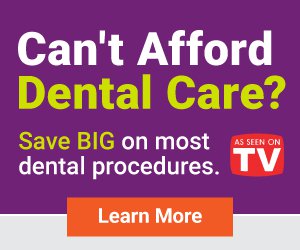12 Common Dental Myths and Misconceptions You Shouldn’t Believe
Unravel the biggest myths and misconceptions about dental health and dental care. Find out what you should and should NOT be doing if you want to maintain a healthy smile.
1. Sugar Causes Cavities
While it does help the formation of cavities, sugar actually doesn’t cause them.
The culprit behind cavities is bacteria.
They produce an acid that eats away the enamel (the hard outer layer) of your teeth. And this bacteria loves sugar. Unless you rinse and brush it away, it will cause tooth decay.
So, sugar is still bad for your teeth. But, it’s not sugar itself that causes cavities, it only feeds the bacteria that do. That’s why this common dental myth still holds a tiny bit of truth.
2. Brushing Harder Cleans Better
It’s easy to understand why this dental misconception is so commonly believed. But, it’s not true at all. Quite the opposite, actually.
Brushing harder doesn’t clean your teeth better, but it does wear away your enamel. So, you fall on the other side of the horse, and you end up with more cavities if you consistently brush harshly.
3. Chewing Gum Is Just as Good as Brushing Your Teeth
Minty, sugar-free chewing gum leaves a similar feeling in your mouth as after brushing your teeth.
But, it doesn’t even come near the cleaning power of a thorough (but not too harsh) tooth brushing and dental cleaning routine.
4. Charcoal Toothpaste Is Better
Charcoal toothpaste is the latest trend in the dental industry. Supposedly, it helps whiten your teeth. There’s some truth to that, seeing as charcoal is a mild abrasive. So, it can take off surface-level staining, just like baking soda can.
But, charcoal is also a very absorbent chemical.
It can absorb various crucial nutrients in your mouth as you’re brushing your teeth. Charcoal toothpaste often doesn’t include fluoride either, so it provides no protection for your enamel.
5. Enamel Loss Causes Sensitivity
You need to protect your enamel, but not to avoid tooth sensitivity. Tooth sensitivity doesn’t necessarily mean pain. It means that you’re sensitive to temperature changes and pressure.
The cause of tooth sensitivity lies in the tiny tubules that connect your dentin (the middle layer) and the pulp (the inner layer) of your teeth.
The fluid that fills these tubules moves between the two as a result of temperature changes, and that causes the sensation. Not your enamel thinning.
Although, this dental myth isn’t malicious, you should definitely protect your enamel to avoid cavities and keep your teeth healthy.
6. Baby Teeth Do Not Need Dental Check-Ups
This is a very harmful dental misconception for children’s dental health. Although they’re destined to fall out, the health of baby teeth is just as crucial as adult teeth.
For one, tooth decay is painful.
If regular appointments with the dentist can prevent a child from ever being in pain with their teeth, this is a good enough reason to keep up with them. Also, tooth decay doesn’t just affect the tooth. It spreads to the gums, which don’t change.
Babies should have their first dental appointment as soon as their first baby teeth begin to emerge.
While children’s oral examinations usually don’t last long, having a dental professional check on how their teeth develop is very helpful. At the very least, it helps children learn about healthy teeth habits.
7. Bleeding Gums Are Normal
Here’s a common dental misconception that’s completely wrong. The most common reason your gums bleed is gingivitis. This is a milder form of gum disease, but should still be taken seriously. It may be a symptom of an underlying infection or a sign of degenerative tooth loss.
The reason the bleeding gums myth became normalized is that over half of the American adult population suffers from gingivitis.
Luckily, gingivitis is easy to treat. However, left untreated it can turn into periodontitis and a lot of pain.
8. All Toothpaste Is the Same
On the whole, this dental myth is correct. There’s very little difference between many of the mainstream toothpaste brands on the market because they all contain the same ingredients.
However, specialist toothpaste has a slightly different ‘recipe’. Toothpaste can strengthen your enamel, lower your tooth sensitivity, and prevent gingivitis, depending on the special ingredients.
It’s always best to buy the kind of toothpaste that fits your personal health needs.
9. Male and Female Teeth Have the Same Needs
Fundamentally, male and female teeth do need the same things. Regular brushing and flossing, regular dental appointments, and a healthy diet and lifestyle.
However, where there is some truth in this statement, women have their own unique dental needs.
The difference is that female teeth come under much greater strain than male teeth, so it is even more important for ladies to care for their mouths.
Hormonal changes during puberty, menstruation, pregnancy and menopause directly affect women’s dental health. Knowing what these changes entail can keep ladies’ teeth in good condition.
10. Bleaching is Harmful for Teeth
A lot of people think that bleaching and whitening are damaging for the teeth. However, there’s no evidence to support this idea. Making it nothing but a dental myth.
This misconception may stem from the fact that bleaching sometimes causes temporary sensitivity. Perhaps this dental myth originated from how harmful cleaning bleach or hair bleach is on the skin.
But, we may never know...
11. Dental Problems Stay in the Mouth
A lot of people brush off dental problems because they think the problem will simply resolve itself. Even if it’s sensitive or uncomfortable for a while, it will disappear.
However, that can’t be further from the truth.
Your mouth is (unsurprisingly) connected to your body. That means that blood flow and tissue connect it to other parts of your immune system. If your mouth is compromised, the rest of your body is too. Oral health and overall health are directly aligned.
The worst-case scenario for untreated gum disease may seem like tooth loss.
When, in fact, infection in your gums can spread to other parts of your body. It can infect your lymph nodes, eyes, and even your heart.
That’s why it’s crucial to take care of your oral health consistently.
Brush your teeth, floss, scrape your tongue, and use mouthwash twice a day, and get dental cleanings twice a year to keep your health in check.
12. No Pain Means No Need for the Dentist
This dental myth is extremely wrong. However, a lot of people rely on it. Most people don’t visit the dentist until there’s an actual problem with their teeth.
However, dental cleanings twice a year can prevent these problems much better.
During these regular checkups, the dentist can identify possible issues with your teeth before they happen. Or, they can catch diseases you didn’t even notice.
Still, a lot of people don’t go to the dentist until it’s too late. For many, this is largely due to the cost of dental procedures. Even a simple cleaning can be hard on the wallet.
That’s exactly why people use the Carefree Dental discount program. It helps make paying for dental visits and costly treatments much more affordable.
Don’t Believe Dental Myths, Visit the Dentist Regularly
Don’t fall for these dental myths again. Together with your daily dental hygiene routine, regular visits to the dentist can save your teeth, your health, and your wallet in the long term.
In the meantime, if you want to get dental work done for cheaper, the Carefree Dental Card can help you. You can search for a participating dentist near you that accepts the Carefree dental discount card.
It's only $15.95/month for individuals and $19.95/month for families, you can get 15-50%* off your dental bill per visit in most instances at participating dentists.
Sign-up today and save on your next visit to the dentist.
The Carefree Dental blog is not meant to be a substitute for professional medical advice, diagnosis, or treatment. The text and pictures within the content are intended for information purposes only. Readers should consult with a licensed dentist or healthcare professional before seeking treatment.
The Carefree Dental Card is not insurance and Carefree Dental is not an insurance provider.





